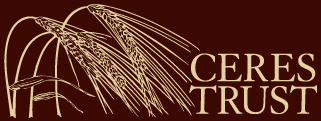Organic Soybean Variety Trials
CERES TRUST FINAL REPORT 2017
Dean G. Baas, PhD
Educator, Sustainable Agriculture
NCRSARE PDP Michigan State Coordinator,
Michigan State University Extension, 612 E. Main Street · Centreville, MI 49032
Cell Phone: 269-967-9672 · Fax: 269-467-5641 · Email: [email protected]
Final Project Status:
The Michigan Organic Soybean Variety Trials were implemented over a six year period from 2012 – 2017 funded three years each by the Ceres Trust (2012, 2016 and 2017) and the North Central Sustainable Agriculture Research and Education (SARE) program (2013, 2014 and 2015). Both grants have been completed as of December 31, 2017. This report covers the last year of the trials (2017) and the overall project from 2012 – 2017.
2017 Project Trials
Changes in 2017: The project was coordinated by Dean Baas and Bob Battel, both with Michigan State University (MSU) Extension. Dan Rossman, previous coordinator, retired from MSU Extension in 2013 and has been certified as an organic inspector with Global Organic Alliance and continued to support this project. In 2017 four trial locations were established. The trial location in Lapeer County was abandoned due to field inconsistencies and extensive deer damage. Results from the remaining three locations were reported in 2017. Entries in the trials decreased to 54 from 61 the previous year.
Highlights:
In 2017, we established four organic non-GMO soybean variety trials across Michigan. Three organically certified farms and organically certified MSU/W.K. Kellogg Biological Station (KBS) ground were used to plant 54 soybean varieties(see 2017 Michigan Organic Soybean Entries below) in a randomized complete block design with four replications. Thirty-one varieties included in previous years of the trials were evaluated again in the study in 2017. Organically certified trials were established in Isabella, Tuscola, Lapeer and Kalamazoo counties in Michigan. The trial location in Lapeer County was abandoned due to field inconsistencies and extensive deer damage. Results from the remaining three locations were reported in 2017. The 2017 growing season was completed at the trial locations. Yield, maturity and height data was gathered and harvested samples were submitted to the MSU Soybean Breeding Program, overseen by MSU soybean breeder Dr. Dechun Wang, for quality assessments including oil content, protein content and seeds per pound. These analyses have been completed and a fact sheet produced detailing a comparison of this year’s trial data. In addition, since 2014 multi-year data has been summarized for varieties that have been in the trials for 3, 4, 5 and 6 years.
